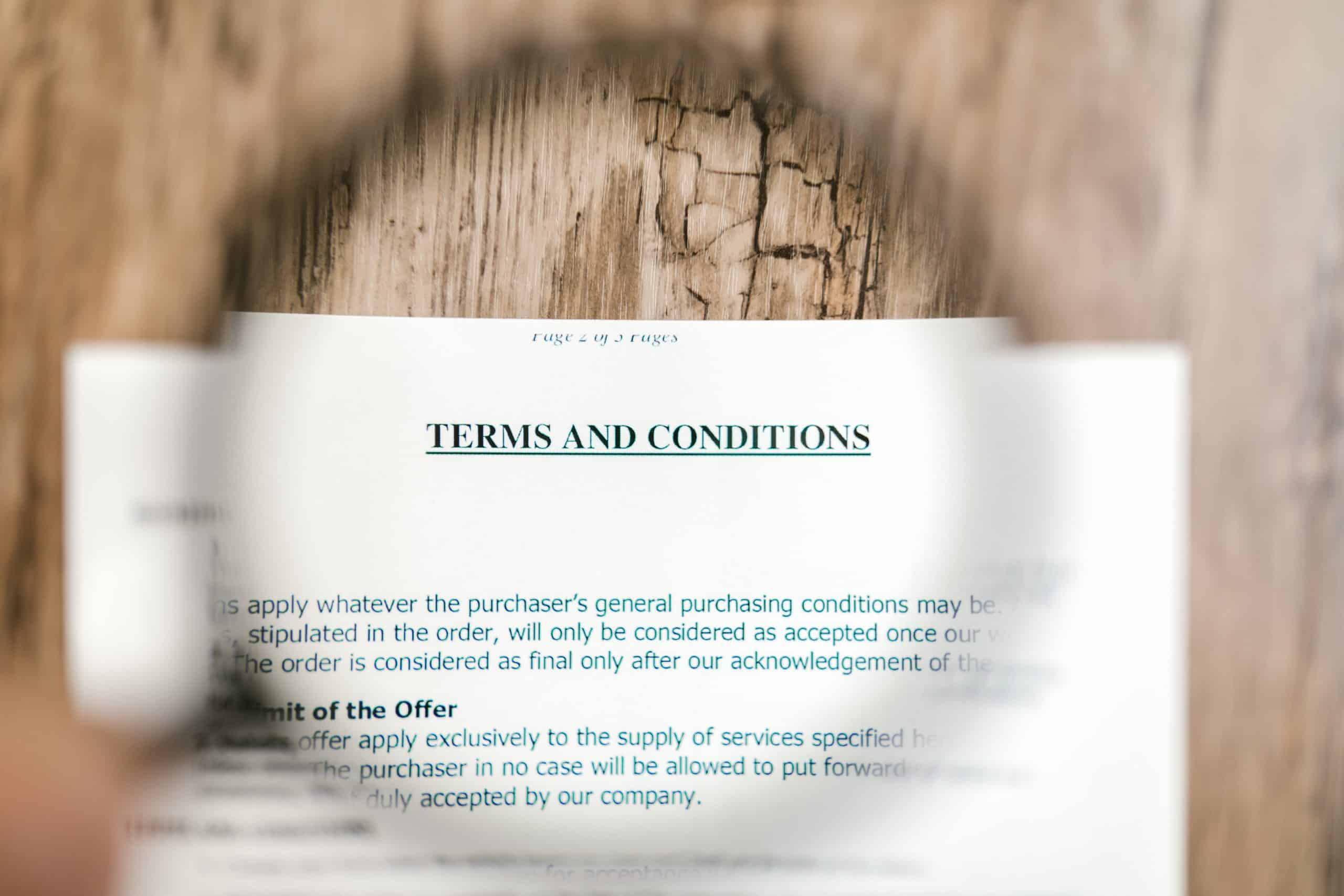14 May 2023
Why Your Terms And Conditions May Be Letting You Down

A robust set of terms and conditions are essential for every business, allowing you to clearly outline the products or services you are selling, the terms on which you are selling them, and the steps that will be taken if things go wrong.
However, not only is it vital to get your terms and conditions drafted properly by a legal professional from the outset, it is equally important to review them regularly to ensure they remain fit for purpose and protect your business interests.
Whether you are a Start-up or a long-standing business, your organisation’s terms and conditions form the basis of a legally binding contract between you and your customers. They are designed to minimise the risk of consumer complaints and commercial disputes, and to provide clarity and certainty as to what should happen if you or your clients cannot hold up their end of the deal.
No two businesses are the same, so it is crucial to have your terms and conditions specially drawn up by a solicitor who will ensure they meet the needs of your particular business with all its idiosyncrasies.
Simply cutting and pasting the terms and conditions of another business, or using standard terms from a template, may not afford you the legal protection that you require. It is likely you will need more than one set of terms and conditions to cater for different types of clients, such as consumers, businesses, or international concerns.
Why Might You Want To Amend Your Terms And Conditions?
Circumstances change and, as your business evolves, there are a number of reasons why your terms and conditions may need revising or replacing altogether.
These include:
- They may have been drawn up hastily, without much thought as to your business needs, or without professional advice when you first set up your venture.
- You may have changed the products or services you offer, or the way that you offer them.
- New law, regulations or guidance affecting your industry may require them to be updated and revised to ensure your continued legal compliance. The Bribery Act 2010, Modern Slavery Act 2015, and the Data Protection Act 2018, are all examples of new rules which would have required many businesses to review their contract terms.
- There are a number of legal requirements which govern e-commerce, and if you have moved your business online it is likely that your old ‘offline’ terms and conditions will not be appropriate.
- Unforeseen events and industry changes – be it technical advances, inflation, a pandemic, parts shortages, global conflicts, wholesale price increases, material shortages – could act as signals that your commercial contracts need updating to keep up with market conditions.
- Changes to your insurance coverage could serve as a spur to make you check your contract terms to ensure that your liability risk is minimised.
- Keeping up with the competition may make you consider softening some of your more stringent terms and conditions to ensure you retain customer loyalty and do not cause them to look elsewhere.
- Your current terms and conditions may be problematic for your business or some of your clients. This might only emerge as your business develops, your forecasts change or your priorities evolve.
- Perhaps you are struggling to cope with several iterations of your terms and conditions and can see the benefit of bringing things into line.
If you have agreed alterations to your terms and conditions verbally because the written terms were proving problematic, it is always best to get these changes written down and agreed to ensure you are able to fend off the risk of a contractual dispute later due to any misunderstanding.
How Can You Change Your Terms And Conditions?
You can change any terms of a contract as long as you have agreement from the other contracting party. If the amendments were agreed verbally, the new terms should be outlined in a new written contract to ward off the risk of any future dispute.
If you have a valid review clause in your contract, this allows you and the other contracting party to review the terms of the agreement and agree to renegotiate the terms of your contract before the contract expires. This may happen if, for example, the original agreement has become prohibitively costly, or the delivery times originally agreed are unfeasible.
What if you are not happy with your contractual relationship with another party, but still want to retain a business relationship with them, albeit on different terms? If your contract contains a termination clause, and the grounds it specifies for termination are met, you can end the current contract early and renegotiate a new contract on different terms.
How We Can Help
As seen above, there are number of ways you can change your terms and conditions with existing clients, but it is wise to have a legal professional to help you spring-clean your existing standard terms and conditions and make them future-proof and fit for purpose.
Our specialist commercial lawyers will talk you through the needs of your business, and the different types of clients you have, before revising your terms and conditions. This will ensure you are compliant with all the latest rules and regulations, while protecting your company and catering specifically for your business needs.
For existing clients, they can help renegotiate new terms if required, ensuring that any contract changes will not adversely affect your contractual arrangements with other clients.
Notes
For more information about contracts, click here.
